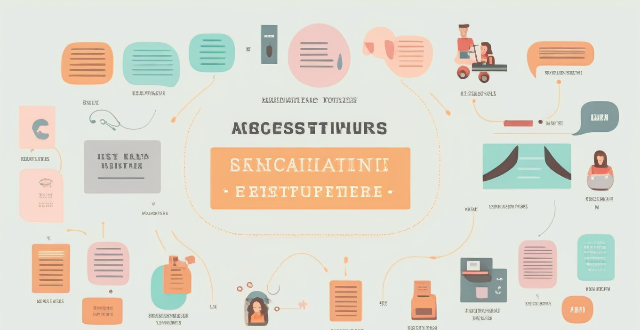Remote education platforms offer a range of accessibility features, personalization options, and support services to cater to the needs of students with special needs. These include text-to-speech and speech-to-text features, closed captions and transcripts, alternative formats for course materials, customizable settings, flexible scheduling, adaptive learning technologies, tutoring and mentoring services, accommodations and modifications, and counseling and mental health support. By providing these resources, remote education platforms can help ensure that all students have equal opportunities to succeed in their courses.

How Do Remote Education Platforms Cater to Students with Special Needs?
Introduction
Remote education platforms have become increasingly popular as a means of providing education to students who are unable to attend traditional classroom settings. These platforms offer a wide range of features that can cater to the needs of students with special needs, including those with physical disabilities, learning difficulties, and other conditions that may affect their ability to learn effectively.
Accessibility Features
1. Text-to-Speech and Speech-to-Text
Many remote education platforms offer text-to-speech and speech-to-text features that allow students with visual or auditory impairments to access course materials more easily. For example, a student who is blind can use a screen reader to read aloud the text on the screen, while a student who has difficulty hearing can use speech-to-text software to convert spoken words into written text.
2. Closed Captions and Transcripts
Closed captions and transcripts are also available on many remote education platforms, allowing students who are deaf or hard of hearing to follow along with lectures and discussions more easily. These features can be especially useful for students who rely on sign language interpreters or other assistive technologies to communicate.
3. Alternative Formats
Some remote education platforms offer alternative formats for course materials, such as large print or braille versions of textbooks and other resources. This can be particularly helpful for students who have difficulty reading standard print sizes or who require tactile input to process information.
Personalization Options
1. Customizable Settings
Remote education platforms often allow students to customize their settings to suit their individual needs. For example, a student with ADHD may benefit from using a color-coded system to highlight important information, while a student with dyslexia may prefer to use a specific font or background color that makes reading easier.
2. Flexible Scheduling
Another advantage of remote education is its flexibility in terms of scheduling. Students with special needs may require more time to complete assignments or participate in discussions, and many remote education platforms allow them to work at their own pace without penalty.
3. Adaptive Learning Technologies
Some remote education platforms incorporate adaptive learning technologies that adjust the level of difficulty and pacing of course materials based on a student's performance. This can be particularly helpful for students with learning disabilities or other conditions that affect their ability to process information quickly.
Support Services
1. Tutoring and Mentoring
Remote education platforms often offer tutoring and mentoring services to help students with special needs succeed academically. These services can provide additional support and guidance outside of regular class hours, helping students stay on track and achieve their goals.
2. Accommodations and Modifications
Many remote education platforms also offer accommodations and modifications for students with special needs, such as extra time on tests or assignments, alternative formats for assessments, or assistance from notetakers or sign language interpreters. These accommodations can help ensure that all students have equal opportunities to succeed in their courses.
3. Counseling and Mental Health Support
Finally, some remote education platforms offer counseling and mental health support services for students with special needs. These services can help address any emotional or psychological challenges that may arise during the course of study, ensuring that students feel supported and empowered throughout their academic journey.